Main Content
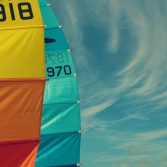
Sail: An agile advantage
Established in 2016, Newcastle-based DBA member, Sail Creative defies the traditional agency structure.
We caught up with its founder, Mandy Barker to explore the agility and autonomy Sail’s flexible way of working delivers to everyone involved and why building close and trusting relationships is key to its success.
Sail isn't a traditional agency model... what makes it different?
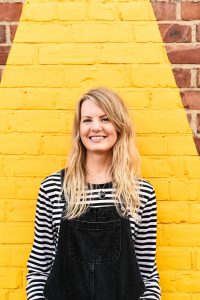 I set up Sail Creative in 2016 to specialise in arts, culture and positive social change. As a collaborative branding and design collective, Sail defies the traditional agency structure. We bring together a tailored and dedicated team of specialists for each project, meaning agility, expertise, collaboration and investment from everyone involved (and support for the ever-growing and awesome freelance economy).
I set up Sail Creative in 2016 to specialise in arts, culture and positive social change. As a collaborative branding and design collective, Sail defies the traditional agency structure. We bring together a tailored and dedicated team of specialists for each project, meaning agility, expertise, collaboration and investment from everyone involved (and support for the ever-growing and awesome freelance economy).
Why did you decide to take this approach?
A bit of rebellion against the world of conventional employment…
I had always had a passion to work for myself, but with a team. Anyone in industry knows a collaborative team strengthens project results through positively challenging ideas, and that freelancing can be quite isolating. I was also aware of the benefits of freedom and flexibility working for yourself, so wanted to support this model by working this way.
Also… low overheads – we don’t have to take on every job to pay a big team. And by being in control and pushing creative boundaries we get to create awesome work. We have focused time on each project, and are in a great position to hand select projects.
What are the greatest benefits of this model?
We are built on honesty and integrity – we don’t say to clients ‘Sail Creative can do  everything’, instead we say ‘our strength is branding, we also have an eco-system of excellent people who specialise in their own areas for other aspects of design and communications that we collaborate with regularly’. As every project is bespoke, the client will get hand picked specialists tailored for them, which gets excellent results.
everything’, instead we say ‘our strength is branding, we also have an eco-system of excellent people who specialise in their own areas for other aspects of design and communications that we collaborate with regularly’. As every project is bespoke, the client will get hand picked specialists tailored for them, which gets excellent results.
It means we can really focus our attention and time on doing a handful of projects at a time really well, instead of having to take every project that comes along, and rushing jobs.
What are the most challenging aspects of working this way?
It takes a lot of organising, which thankfully, I enjoy! Art directing, planning and scheduling are key, and clear communication across the team. I am finding (and creating) the best systems and software to support this model as I go.
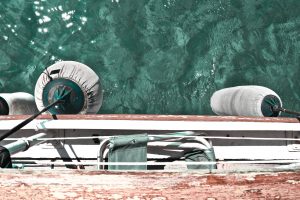 Everyone works differently, so building close and trusted relationships is key, where people can freely speak about their ideas and opinions. I will always push to create an open environment where no idea is stupid – a lot of this comes down to the people you bring into the team.
Everyone works differently, so building close and trusted relationships is key, where people can freely speak about their ideas and opinions. I will always push to create an open environment where no idea is stupid – a lot of this comes down to the people you bring into the team.
And the most rewarding?
So many things!
This way of working means flexibility and freedom without losing collaboration. As said above we can also hand select projects we feel we can make a real impact in. And everyone is self employed, which results in personal investment and loyalty from each team member, further benefitting the project. This also brings personal and professional passion from each person for each and every project we work on.
Tell us about the values that underpin your business.
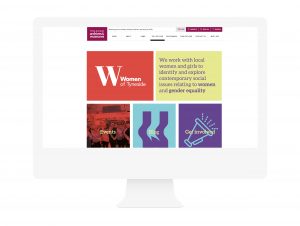
As a visual communicator/designer, I have always felt a strong sense of responsibility to use this skill to communicate socially focussed issues. Design doesn’t only need to look good — it can do good too.
We try to make time for self initiated projects which allow us challenge the status quo and highlight real-world issues. I will always push Sail to work towards a culture, workflow and output that are inherently trustworthy and moral.
Our values are: Exploration, Positive social change, Culture, Collaboration, Fearlessness, Excellence, Empathy
Being true to our values organically attracts a certain type of client and certain freelancers. We will always aim to work with people that share these values, both clients, suppliers and freelance. I want us to consider this social responsibility in the whole project chain, including sourcing ethical print and materials.
It’s also about being brave enough to say no to the wrong projects, so you can say yes to the right ones.
Sail in action...
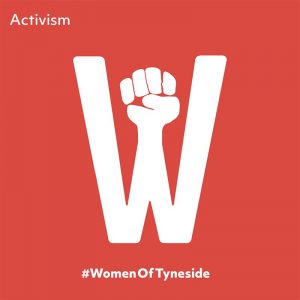 Sail are currently working on two socially focussed contracts, a brand and marketing campaign with Tyne and Wear Archive and Museums, to celebrate women of Tyneside, and a billboard campaign with Newcastle Carers who provide support to young adult carers.
Sail are currently working on two socially focussed contracts, a brand and marketing campaign with Tyne and Wear Archive and Museums, to celebrate women of Tyneside, and a billboard campaign with Newcastle Carers who provide support to young adult carers.
Both clients are in the social and cultural sectors, which is in remit of the type of work we love. They have been great to work with in terms of being open to a different way of working, and bold creative ideas.
We have been able to be both proactive and reactive with each project, keeping our shared vision with the client at the heart of the project, whilst giving flexibility with meetings, workshops and deadlines where needed.
We always look to get to know each client and organisation really well, relationships are key for us as they further our understanding, creative ideas and results.
There are more exciting projects in the pipeline, and who knows what other opportunities will arise in the coming months – as important as it is to be proactive and plan ahead, it’s just as important to stay open minded and reactive to potential opportunities too. This is just the beginning!